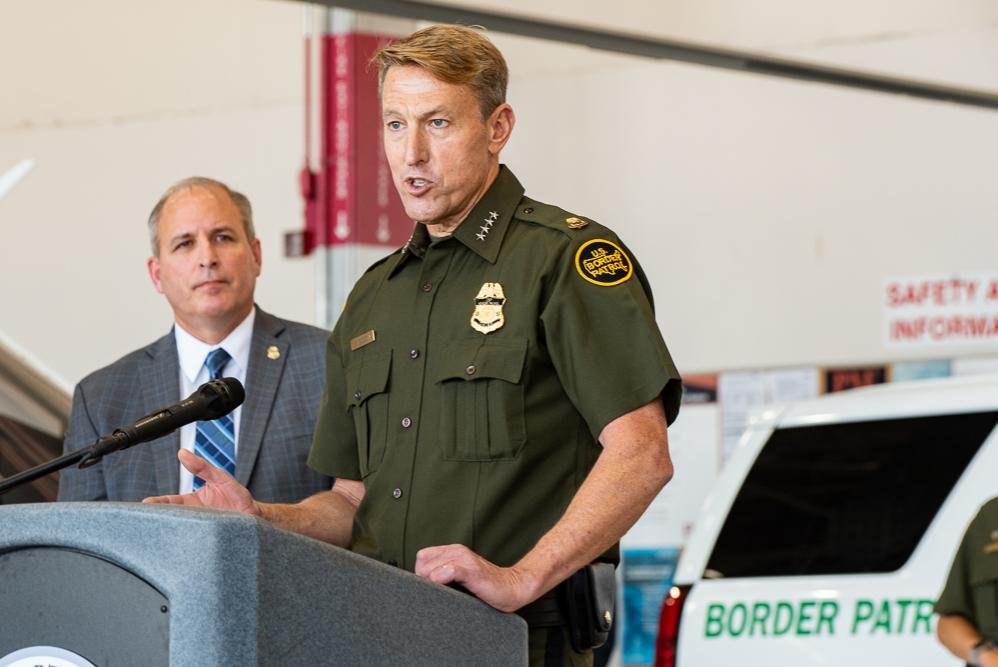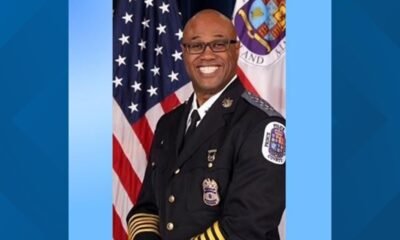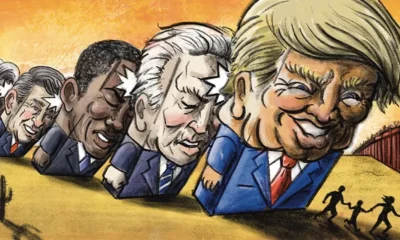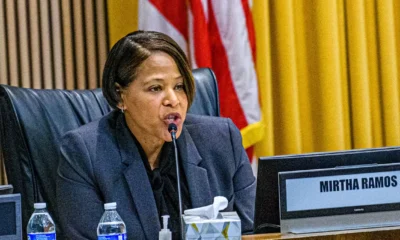arizona
Trump’s Former Border Patrol Chief Takes the Helm at CBP

Rodney Scott has been appointed as the new leader of U.S. Customs and Border Protection (CBP) following a narrow Senate vote on Wednesday. The vote divided largely along party lines, with 51 Republicans supporting Scott’s confirmation and 46 Democrats in opposition. Three senators abstained from voting.
Arizona Senators Mark Kelly and Ruben Gallego both voted against Scott. His confirmation comes as CBP continues controversial operations, including detaining individuals across various U.S. locations. Recent actions in Los Angeles have triggered large protests, primarily directed at U.S. Immigration and Customs Enforcement, yet the Border Patrol also plays a significant role in these operations.
Scott will oversee an agency of 60,000 personnel at a time when it is increasingly engaged in arrests backed by helicopters and drones from Air and Marine Operations. In fiscal year 2022, CBP operated on an $18.5 billion budget, managing approximately $4 trillion in trade and processing nearly 410 million travelers.
CBP officials expressed support for Scott, emphasizing his operational experience and commitment to the agency’s mission of border protection and legal enforcement. In a statement, Scott expressed gratitude for his confirmation and reaffirmed his commitment to lead with integrity, stating, “I am ready to lead my CBP family with a clear mission to defend our sovereignty and put America first.”
Raised in Nogales, Scott’s career spans over 29 years, starting in 1992 and including significant roles in the San Diego Sector. Notably, he is the first individual to rise from a Border Patrol agent trainee to the position of CBP Commissioner.
Scott’s leadership of the Border Patrol began in February 2020 and extended through the Biden administration until June 2021. Previously, CBP was without a Senate-confirmed leader since Chris Magnus resigned in November 2022 amid internal strife after advocating for reforms.
Throughout his tenure, Scott has championed the construction of border barriers, even in sensitive ecological areas along the Arizona-Mexico border. He previously defended these constructions, likening them to a “front door” for private homes. His public stance continued even after leaving the agency, where he often criticized the Biden administration on various platforms.
However, Scott’s confirmation was not without controversy. He faced accusations from Senator Ron Wyden regarding his alleged involvement in covering up the 2010 death of Anastasio Hernández Rojas, who died after being detained by CBP officers. Wyden has publicly denounced Scott’s nomination, stating it raises significant ethical concerns regarding his judgment and character.
During a Senate hearing, Wyden highlighted serious flaws in the investigation following Rojas’s death, including claims of evidence tampering. The federal government later settled a lawsuit linked to the incident for $1 million, but no charges were filed against any involved officers.
Wyden criticized Scott’s nomination, arguing it signals a potential for continued abuses under his leadership. He expressed concern that Scott’s historical actions do not align with the integrity required for such a pivotal law enforcement role, raising alarms about the risk of further rights violations under CBP.


















